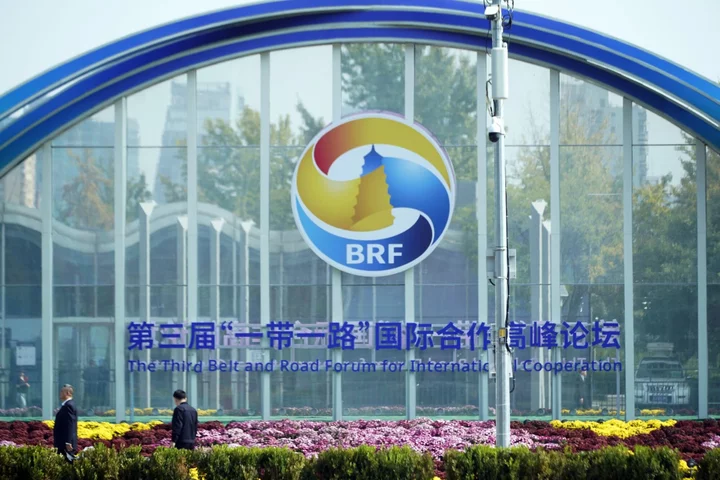China said it would prioritize small projects and push for greater use of the Chinese currency through its Belt and Road Initiative, as President Xi Jinping looks to inject new life into his flagship investment program amid a slowing domestic economy and global skepticism over the project’s benefits.
China will “give priority for the ‘small and beautiful’ projects, focus on those with small investments, quick impact, as well as sound economic, social and environmental benefits,” according to a government document laying out the 10-year vision for Xi’s “project of the century” published Friday.
The global infrastructure and trade initiative drew an estimated $1 trillion in the decade since it was launched in 2013. But momentum has tapered off in recent years as the pandemic and China’s slowdown disrupted the global economy. Beijing has also faced accusations of being an irresponsible lender driving countries to default.
Read: Xi’s $1 Trillion ‘Project of the Century’ Gets a Reality Check
The statement was released by a government body that studies BRI-related planning and policies and coordinates efforts to implement the initiative. It reaffirmed the project’s recent shift from massive infrastructure projects.
The average BRI deal size fell to $392 million in the first half of this year, 48% smaller than its 2018 peak, according to think tank Green Finance & Development Center. In a forum marking the initiative’s 10th anniversary last month, Chinese officials emphasized sustainable debt and greener, more cost-effective projects.
A More Global Yuan
China also plans to promote internationalization of yuan in BRI projects, according to the document.
China will steadily push forward the use of local currencies in bilateral cooperations with BRI countries, and “encourage greater use of yuan in overseas investment by financial institutions,” the document reads.
Read: China and Saudi Arabia Sign Currency Swap Worth $7 Billion
Repeating a pledge it made as early as 2015, Beijing said it would support foreign governments and companies with high credit ratings to sell yuan-denominated bonds in China. Meanwhile, qualified Chinese financial institutions and firms will be encouraged to sell bonds in yuan and foreign currencies abroad, with the funds raised to be invested in projects in BRI countries.
Such measures could expand international demand for the yuan, such as by creating channels where foreign investors can invest their holdings of the Chinese currency in, as Beijing presses ahead with its ambition to boost the yuan’s global role.

